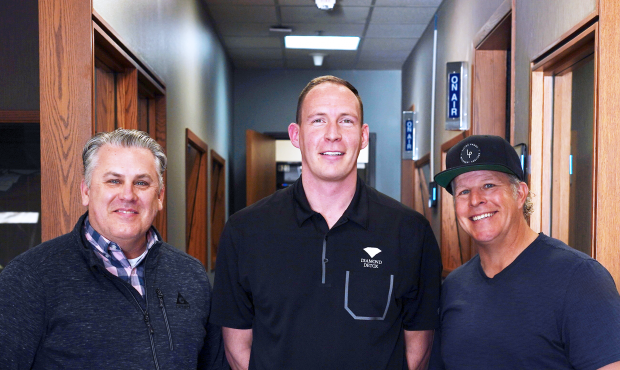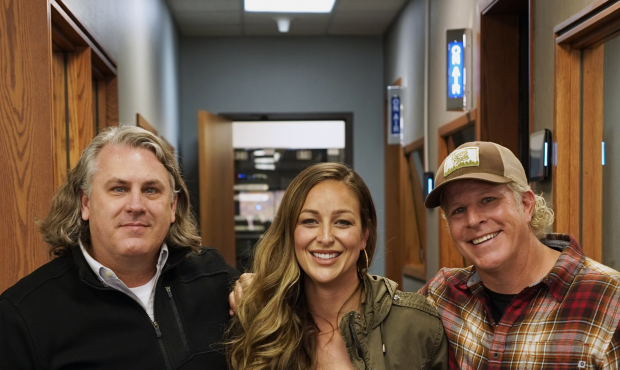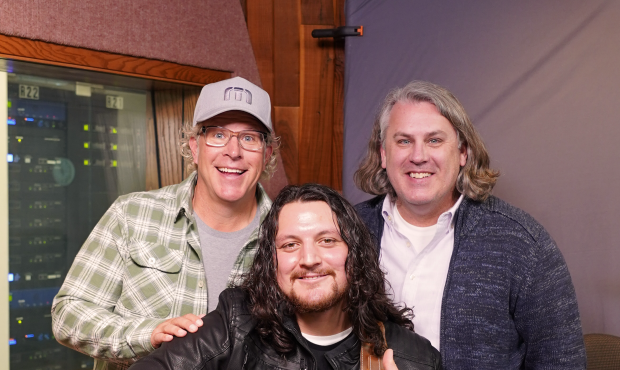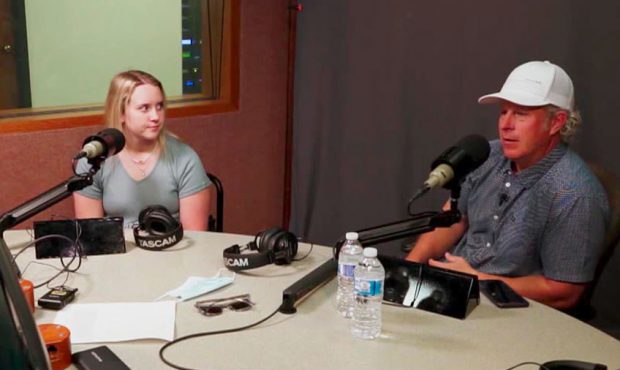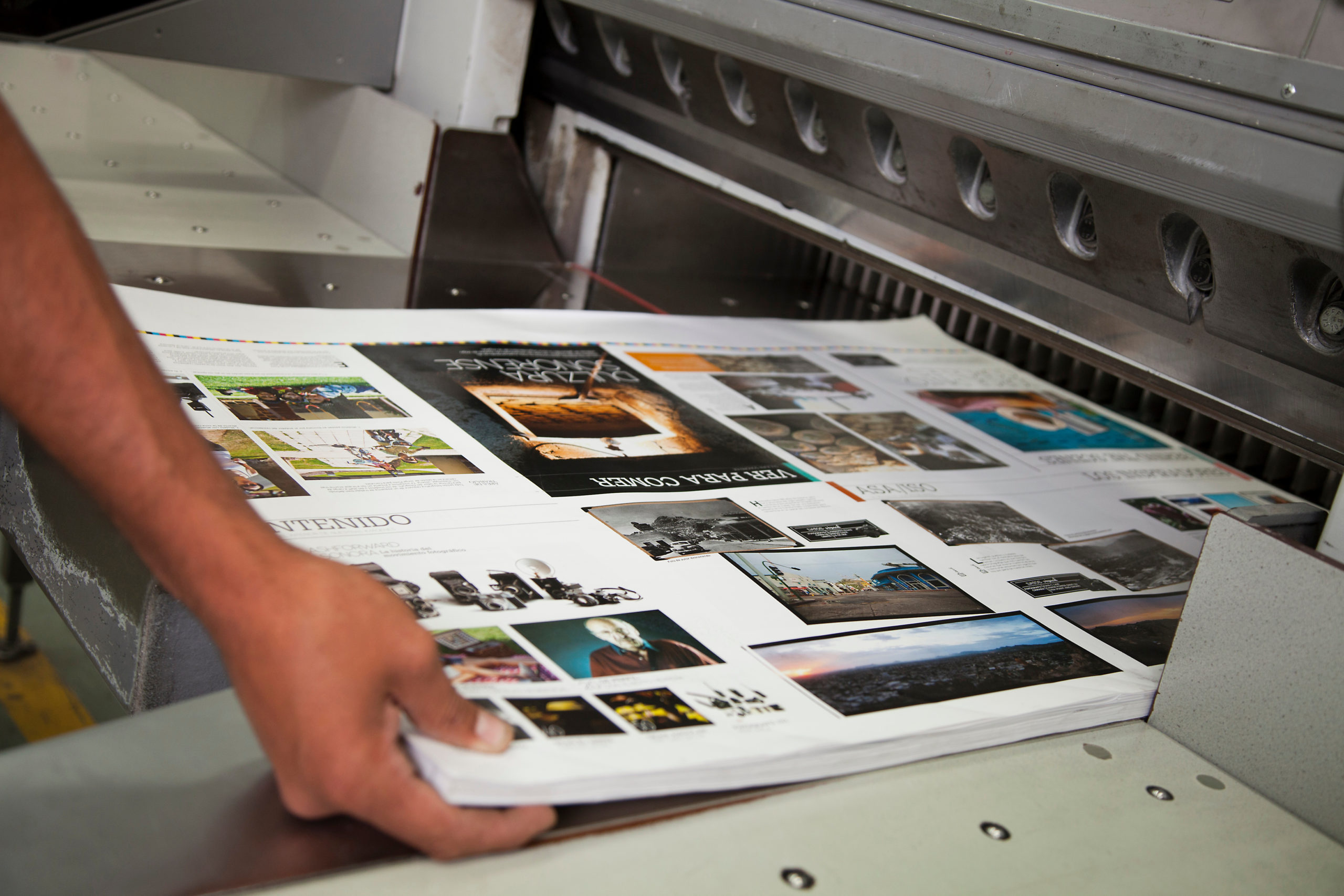PROJECT RECOVERY
Substance abuse cripples a Utah woman for decades
Sep 26, 2019, 9:29 AM
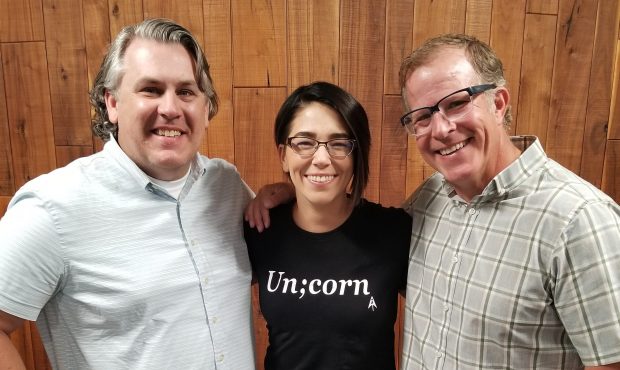
Felicia Marie joins the Project Recovery podcast to talk about how substance abuse has plagued her for years.
Substance abuse can take on many faces. Faces of fear, worry, horror, and unfortunately, bliss. Felicia Marie knows the effects of that substance abuse first hand.
By the age of seven, Felicia had started smoking cigarettes, witnessed the divorce of her mom and dad, and saw how substance abuse could corrupt a family. She grew up surrounded by drugs and alcohol. Anger filled what should have been a loving household. Where support and sympathy should have flourished, hate and disdain would plague Felicia’s childhood.
“I started drinking when I was eleven and fluidly drinking when I was twelve,” Felicia said. “I got molested in the other room when I was about nine and my parents were in the other room partying. This man was my aunt’s boyfriend.”
Growing up in a household of substance abuse
Molested — and unable to speak due to her fear of what would happen. To her, to her family, to her home. She didn’t have the support she needed or the love to work through such a tragedy.
“I didn’t have the confidence to speak up and say how I felt,” Felicia described. “I didn’t feel like I had the environment and the support to actually say anything.”
How do you grow up as a pre-teen after undergoing such an experience? How do you speak about what happened to you when no one is there to listen? If you’re Felicia, you don’t. She blacked it all out. Until a year later.
She felt too much pain and betrayal. She had to speak to someone, anyone. Felicia tried to tell her mom what had happened when she was thirteen.
Nothing happened. Her mother chose not to act. No criminal investigation began. Felicia just wanted justice. She wanted to feel normal.
“I was not worthy of love, I was not worthy of being cared for, nobody fought for me,” Felicia said. “So I was on my own.”
Felicia’s own substance abuse starts to flourish
Felicia grew up in an extremely poor household. Her mother worked two jobs and her step-dad was an alcohol addict. Her environment began to be corrosive to her growth as a teenager and the lack of support meant she needed to find her own way. So, she did just that.
She began to follow the footsteps of her older sister. For Felicia, that meant skipping school, smoking weed and cigarettes, drinking alcohol, and ingesting ecstasy — at the age of fourteen. Her actions eventually led her to truancy court.
“I was in truancy court because I sloughed so much school but to be honest, I was helping my dad watch his kids,” she said.
Felicia’s substance abuse went downhill fast. She should have been focused on school, friends, hobbies, and growing up as a teenager. Instead, she overdosed at the age of 14 on an over-the-counter pill called “Red Devils.”
But that wasn’t enough for Felicia, who felt she needed more. After experimenting with ecstasy the same year, she ultimately overdosed on that as well.
“I got home and my sister was like, ‘You look like you’re going to die,'” Felicia said. “I was pale, sunken in cheeks, I was probably twenty pounds lighter than I am right now.”
Her sister then called Felicia’s parole officer and told her what was going on.
Consequences for Felicia’s actions begin to catch up
Felicia was sentenced to five months detention and ordered to participate in a wilderness retreat program created by Alternative Youth Adventures for three months.
“You live outdoors for 90 days; 45 for men,” she said. “It’s one of the experiences I’ve had in my life that I share with everybody.”
It was exactly what Felicia needed. She was “free but had stability.” After she left the program, she was sent back to detention, followed up by foster care for about a year.
She did not do well in foster care due to what she describes as a toxic environment. Felicia ultimately called the cops on herself, to save herself. Felicia went to a group home after being assaulted by her foster mother.
At 16 years old, it was time to make a decision. Who was Felicia going to be? What was she going to do with herself? Who was going to be her family? What was it going to take to get ahead of her struggles?
Her mother and aunt held a meeting — a meeting to determine guardianship. Felicia’s mother couldn’t support her any longer. She couldn’t take the substance abuse anymore. Felicia’s mother told her she didn’t want her. So, her aunt stepped in.
“That literally was the hardest thing to hear from my aunt,” she said. “It will never feel good to know that your parent doesn’t want you.”
To this day, Felicia’s relationship with her mom is non-existent.
Trying to run away from substance abuse
Felicia moved forward. She says she had to.
Eventually, her aunt and uncle adopted her. In a new home, a new family, she began to excel. She got straight A’s in high school and stopped all of her substance abuse… except for alcohol. The alcohol abuse that ran in her family still held tight, Felicia recalled.
Felicia was trying to change for the better. She was on the right track, making better choices, focusing on what mattered in life, and growing into a better woman. Until she met her now ex-husband.
He had his own struggles with addiction and was constantly using ecstasy and pain relievers to combat his anxiety. For Felicia, surrounding herself with another addict was the “normal” way of living. How could she change something when she didn’t know anything else? So, she says, she continued down a dark road. Felicia married him and they had four kids together.
That marriage lasted five long years of what Felicia describes as addiction, anger, and pain. Her husband went in and out of prison and jail because of addiction. Felicia found addiction everywhere she turned. She couldn’t avoid it and she definitely couldn’t run away from it.
Living in a world full of addicts, Felicia had been brought to the brink of her sanity. She was in a complete state of shock and wasn’t sure if she could go on.
“I couldn’t even bring in enough money to support my four kids. My ex-husband was going to jail and prison for mental health issues,” she detailed. “I literally told myself, your kids are so much better off without you, you just need to make it happen.”
Unable to go any further
So, that was it. She couldn’t go on anymore. Felicia had mentally checked out. Her substance abuse had won. She had been struggling for so long to make her life better and now it was all catching up to her. She drove up to her favorite spot in Arizona next to a lake, turned off her phone, and officially hit her rock bottom.
“My gun was ready, hand on the trigger and some man pulled up next to me in his car and his dog hopped out,” she said. “His dog brushed his tail up along my window as he was walking by, and something snapped.”
The breakdown that she was experiencing had passed.
She eventually apologized to herself and to her kids.
Felicia’s mindset had shifted and she finally realized that she had a problem. It was time to focus on recovery from more than just substance abuse — recovery from a troubled childhood full of mental and physical abuse as well.
“When you’re told or shown your entire life that you’re not worthy…you believe those things,” she said. “I had to completely transform and rewrite everything about myself.”
Felicia is now focused on her recovery. Since decided to change her life, she has experimented with different types of recovery but finds solace in eating healthy, daily affirmations, and creating a dialogue of discussion about addiction.
To hear more from Casey Scott and Dr. Matt Woolley, you can listen below or subscribe to the ‘Project Recovery’ podcast on Apple Podcasts and be sure to check out the ‘Project Recovery‘ page on KSLTV.com.

